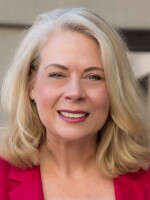Embarking on New Beginnings
Al Waller: Are you ready for a fresh start? Given the nonstop disruptions in nearly every aspect of our lives in recent years, there’s a good chance that you may be thinking about making some changes in your life. And maybe you’re looking for a good place to start.
Welcome back to <b><i>ClearPath – Your Roadmap to Health & Wealth℠</i></b>. I’m your host, Al Waller. Joining me is Catherine Collinson, founding CEO and president of nonprofit Transamerica Institute® and its Transamerica Center for Retirement Studies® and Mihaela Vincze, Transamerica Institute’s public health expert to share their research findings and five recommendations to help people chart a new course for their health and financial well-being.
Before we get started – a reminder that we would love to hear from you and learn what topics you would like us to cover or give us feedback in general. Please drop me, Catherine, or Mihaela a note at [email protected].
Catherine, I’ll direct my first question to you. What is an overarching theme that you’re seeing in your research?
Catherine Collinson: I’ll start with some positive findings from our most recent survey. More than eight in 10 Americans have close relationships with family and friends (84%), are generally happy (84%), and are enjoying life (81%).
However, I also want to share concerning news. More than four in 10 Americans (42%) often feel unmotivated and overwhelmed – which tells me that many people might be ready for changes to help improve their lives.
Al Waller: In my introduction to this episode, I promised that you and Mihaela would share five recommendations. Mihaela, what are your thoughts about health?
Mihaela Vincze: Protecting our health should be front and center of our efforts. Without our health, it’s extremely difficult to engage in our life priorities whether they are family, career, and or enjoying life. Health is the number one item on our list of recommendations.
Our survey asks about healthy activities that people engage in on a consistent basis. It is hardly surprising that relatively few people say they are engaging in eating healthy (54%), exercising regularly (52%), or getting plenty of rest (51%) – but it’s also shocking especially given what’s at stake.
Many people likely have a good sense of where they can make improvements. So rather than putting our listeners on a new diet or exercise regimen or something equally unappealing, I simply ask everyone to consider your long-term health when making lifestyle decisions. Only 19% of Americans indicate they do this.
Becoming more mindful about our daily decisions can inspire a progression of smaller healthy action steps that could have a major cumulative effect over a lifetime.
Al Waller: Amen!! Mihaela, there have been recent headlines about the loneliness epidemic in America. Not to ask a leading question – but I will. Is addressing loneliness on your and Catherine’s list of five recommendations?
Mihaela Vincze: Yes, it is. Addressing loneliness is our second recommendation. Loneliness is something that affects many people, especially coming out of the pandemic.
Social isolation and loneliness can be detrimental to our quality of life and long-term health. Only about half of Americans (51%) say they’re socializing with family and friends on a consistent basis. Thirty-one percent say they often feel isolated and lonely.
Our recommendation is two-fold. If you are experiencing loneliness, reach out to a family member, friend, or neighbor. One way to make new friends is to engage in volunteer work through a community organization – and if you don’t belong to one yet, join one.
The second part of this recommendation is what we call an “everyone responsibility.” It’s important that we all be on the lookout for people who may be experiencing loneliness – and reach out to them and invite them to join social activities.
To learn more, check out our recent podcast episode on Overcoming Feelings of Loneliness.
Al Waller: Great points, Mihaela. I especially appreciate your recommendation that we all look after our friends and loved ones. We live in a busy world. It’s so easy to get swept up in our own activities that we could be slow to notice when someone may be suffering.
You used the expression “everyone responsibility.” I recall Catherine using that expression on one of our podcast episodes but in a different context. Catherine, I’d like for you to discuss it.
Catherine Collinson: Thanks, Al. Another all-important “everyone responsibility” is caregiving. In the immortal words of former first lady Rosalynn Carter, who will be forever renowned for her outstanding advocacy and support of caregivers. She famously said, and I quote….
"There are only four kinds of people in the world: those who have been caregivers, those who are currently caregivers, those who will be caregivers, and those who will need caregivers."
Our third recommendation is to proactively plan for the distinct possibility of either becoming a caregiver or needing to receive care as you are envisioning life changes. Especially now, as the Baby Boomer generation is growing older, and the cost of long-term care is skyrocketing, millions of adult children will be called upon to provide care for an aging parent or loved one. Our research finds that more than one-third of employed workers are currently serving and/or have served as a caregiver in the past.
By considering potential caregiving needs, you can have candid discussions with family and friends and brainstorm solutions. Although many people may be inclined to avoid this topic, it’s much better to proactively plan than wait until a crisis, when emotions are running high and options may be limited.
Al Waller: I couldn’t agree with you more. My family and I have found ourselves in this situation – and many of our friends have, too. For our listeners who are interested in learning more, check out our recent podcast episode about Spotlight on Caregivers in the Workplace.
We’ve just covered two health-related recommendations, a third recommendation of caregiving, which in my view is an intersection of health and financial well-being, now let’s talk about money.
Catherine Collinson: Most people are juggling competing financial priorities ranging from paying off debt (51%) to saving for retirement (42%) and building emergency savings (36%).
When considering lifestyle changes, I invite our listeners to review their financial priorities to ensure they are in alignment with your life priorities and reality.
Let me share an example. Americans indicate they have saved $4,000 (median) to cover the cost of a major financial setback – which is dramatically less than what they’ve saved for retirement. As a result, if and when disaster strikes, many are tapping into their retirement savings before retirement by taking loans and/or early withdrawals, which could be counter-productive to their long-term goals, and in the event of early withdrawals, lead to tax consequences.
Ultimately, our fourth recommendation, which is money-related, is to create a budget and a financial plan. They can serve as a roadmap for the future.
Al Waller: It’s now time for your fifth and final recommendation. Drum roll …
Catherine Collinson: The one thing that we haven’t yet covered is strategizing for older age and when we’re no longer working – which is our final recommendation.
Over our years of survey work, we find that relatively few workers and people who are not yet retired have a financial strategy for retirement in the form of a written plan. Many others say they have a plan in their head – but it’s all in their head.
It’s critically important to understand the level of savings and retirement income that you’ll need later in life.
If your employer offers a retirement plan, a great way to get started is to check into the plan provider’s educational tools and resources. If you’re not offered a plan, start by checking with your bank or credit union or financial services institution. Also, if you’re interested in learning more, check out our recent podcast on Strategizing for Retirement Explained.
Al Waller: Thank you, Catherine and Mihaela. Let me recap our five recommendations:
1. Protect your health.
2. Address loneliness.
3. Plan for caregiving needs.
4. Create a budget and financial plan.
5. Strategize for retirement.
Before we sign off, do you have any final pearls of wisdom that you would like to share?
Mihaela Vincze: Your health is your wealth. Take good care of yourself.
Catherine Collinson: We can embark on new beginnings at any time … at the start of a new year, the dawn of a new day, or the moment when inspiration strikes. Each step we take can propel us to take additional steps. Before we know it, we’re well on our way to change.
Al Waller: Thanks again, Mihaela and Catherine, for this enlightening and inspiring conversation. Here’s to exciting new beginnings for all.
For our listeners who are interested in reading the survey report that we’ve referenced throughout this episode, it’s titled A Compendium of Demographic Influences on Retirement Security and can be found at www.transamericainstitute.org.
Until the next time, I’m your host Al Waller. Stay safe, be well and thanks for listening.
ClearPath – Your Roadmap to Health & Wealth is brought to you by <b><i>Transamerica Institute</i></b>, a nonprofit private foundation dedicated to identifying, researching, and educating the public about health and wellness, employment, financial literacy, longevity, and retirement. You can find our weekly podcast on <b><i>WYPR’s website</i></b> and mobile app, wherever you get your podcasts, and at <b><i>transamericainstitute.org/podcast</i></b>.
ClearPath – Your Roadmap to Health & Wealth is produced by the <b><i>Transamerica Institute</i></b> with assistance from <b><i>WYPR</i></b>.
The information provided here is for educational purposes only and should not be construed as insurance, securities, ERISA, tax, investment, legal, medical, or financial advice or guidance.





